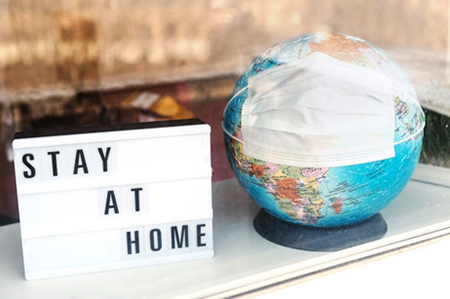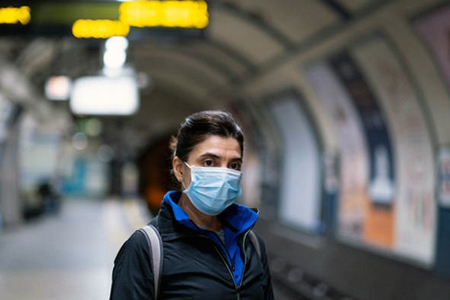The world is plunging into depression amid a pandemic of COVID-19
The second wave of restrictions due to the coronavirus provoked depressed moods in people around the world. A study by the US National Science Foundation found that among young people between the ages of 18 and 24, nearly half have symptoms of depression, Common Health reports.
According to researchers, among the 2 thousand respondents, every tenth person said that they think of suicide more often than before the pandemic. The survey was conducted in several stages from April to November 2020.

In China, a similar study conducted in October among thousands of local residents aged 18 to 35 years old showed that about 80% of respondents suffer from depression against the background of coronavirus. In Europe, average life satisfaction has dropped to a record low in 40 years, researchers at McKinsey & Company note.
Many have lost their jobs or part of their salaries. Income from bank deposits dropped sharply. Quite a few people in many countries lived on a percentage basis in whole or in part. The situation is very alarming.
As marketers note, the general depression in society and the rise in unemployment are also affecting consumer behavior. For example, people have completely lost interest even in the attributes of the Christmas that are popular at all times.
According to data provided by large retail chains, sales of artificial Christmas trees in 2020 decreased by 35%, and artificial pine trees - by 18% compared to 2019. Sales of tinsel fell by 28%. The volume purchased Christmas figurine toys decreased by 10%.
Tips on how to cope with depression caused by coronavirus pandemic

We asked psychologists to give some advice to those who now find it difficult to get out of depression. First of all, to improve the emotional system, it is worth strengthening personal stress resistance, they say. For example, start structuring your day.
Being busy, full of the day is an effective practice for preventing negative emotional states. It is helpful to take time out of your household chores. Regularly ignoring the realization of available desires leads to dissatisfaction with life in general. Making lists and crossing items off is useful because the results can be seen. Also, regular physical activity is a powerful antidepressant, the psychologists recommend.
Psychologists also advise not to plunge headlong into the information flow, which is now overloaded with the coronavirus news.
The daily figures and statistics will continue to increase the alarm rather than decrease. To do this, you can choose one or two information resources that you trust and which you will check for new information. You can also limit the absorption of information by time - select a certain period of time during the day in which you read the news.
To prevent depression, it is also worth separating productive anxiety from unproductive anxiety. Even if you really want to worry, you need to separate what you can influence from what you definitely cannot. In addition, it is also beneficial to spend more time on yourself.
Give yourself more sleep and physical activity. Take more breaks, alternate classes according to the degree of difficulty, take time for relaxation and the opportunity to be with yourself.

If the above mentioned measures do not help, consult your physician or find a psychotherapist who can prescribe you antidepressants, for instance, selective serotonin reuptake inhibitors (e.g. such as Paroxetine) that can help both with depression and anxiety.
Post is made based on the information provided by: Elizabeth Agrer, clinical pshychiatrist, Copenhagen, Denmark
(Updated at Apr 13 / 2024)